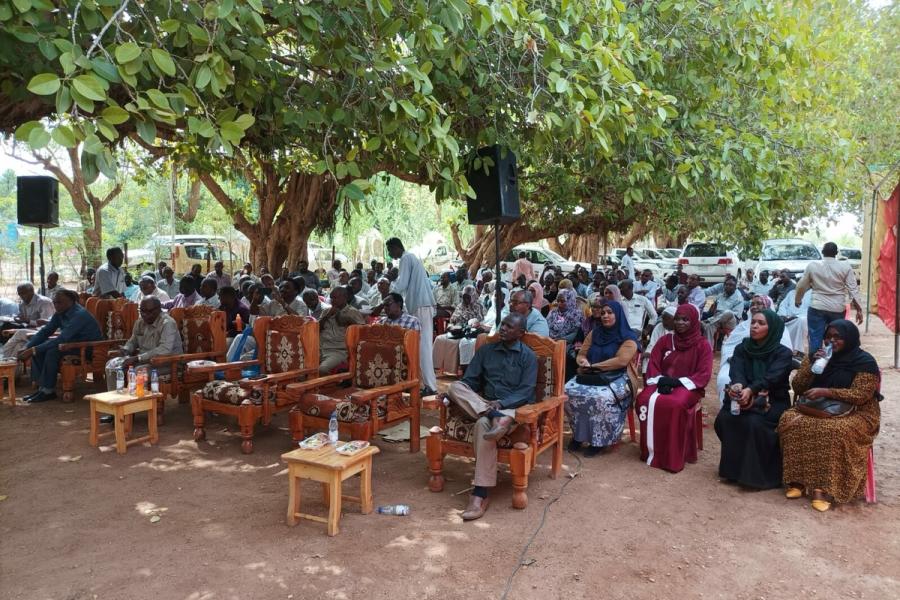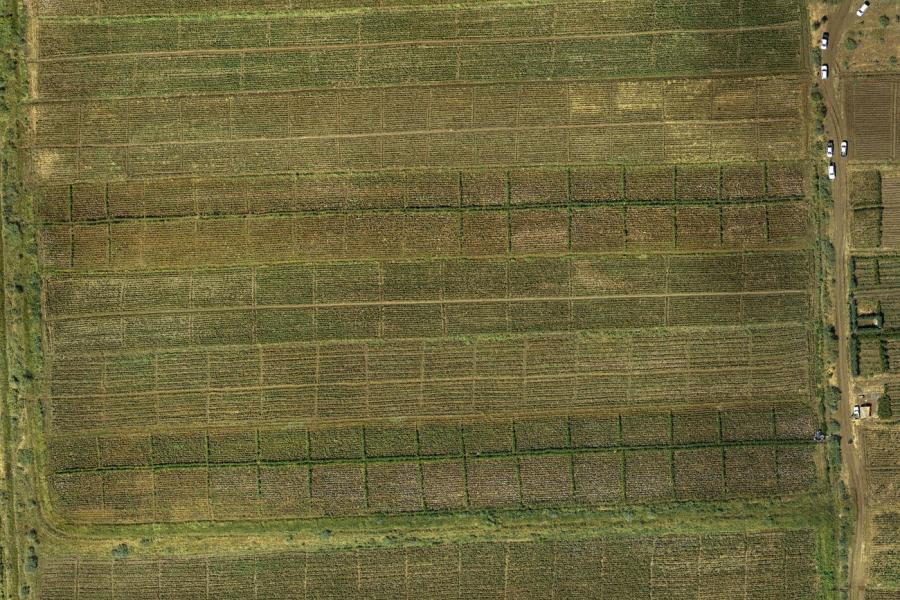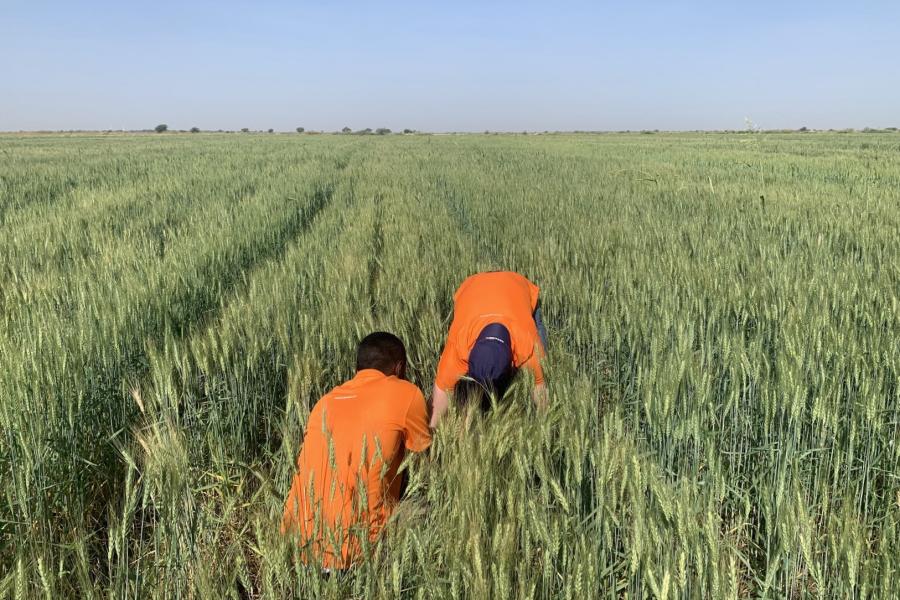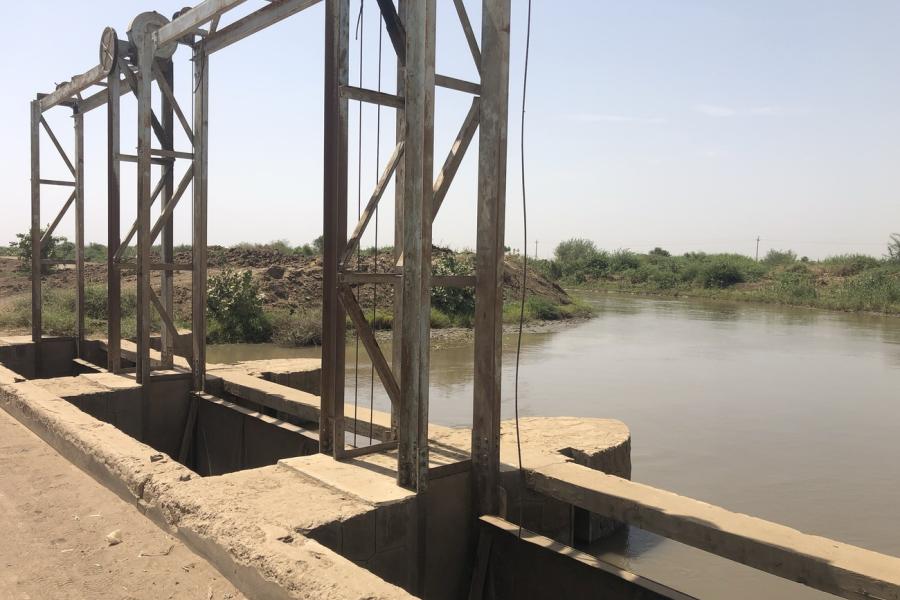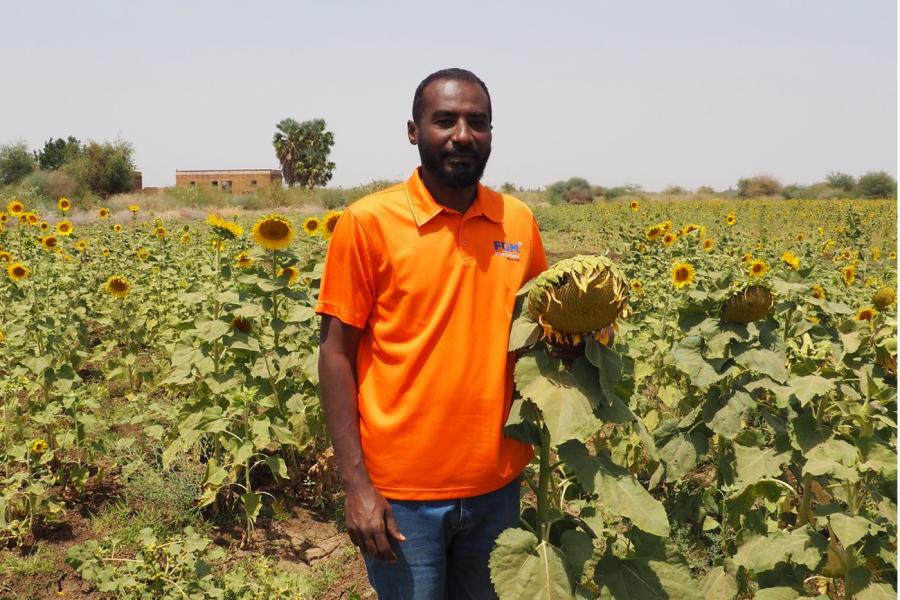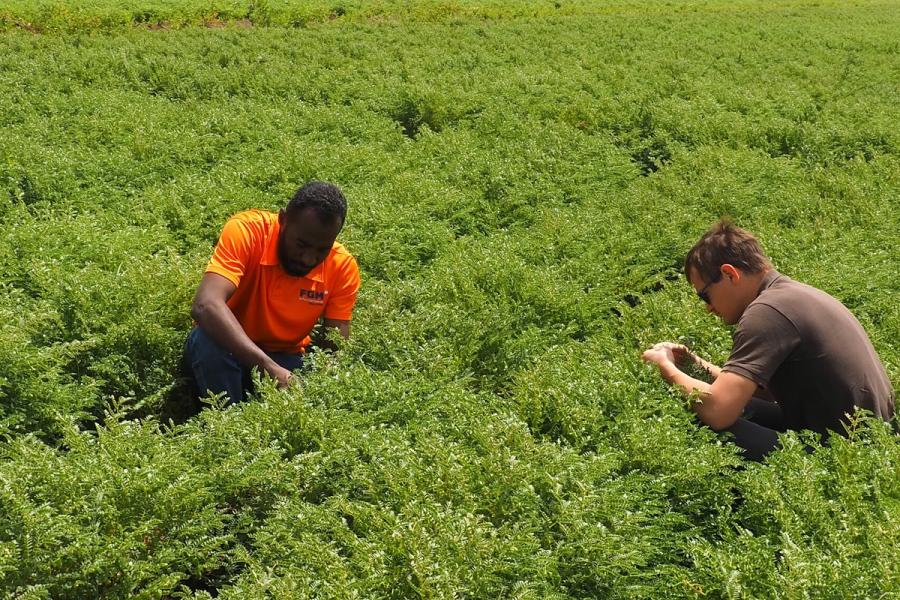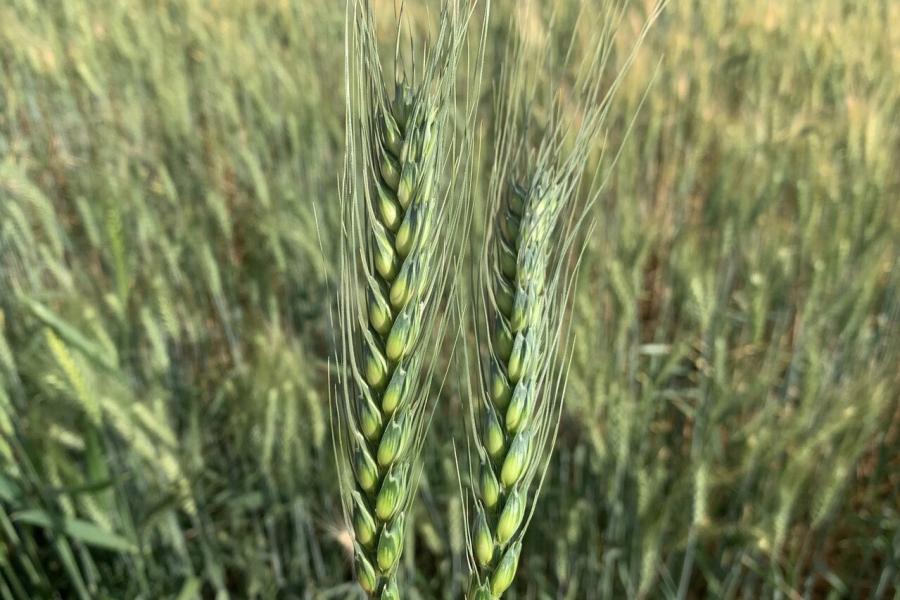
Sudan
To support the development of the agricultural sector in Sudan, the French government has mandated Expert Farmer to improve local farmers’ production performance in the Gezira Irrigation Scheme (800 000 ha). To achieve this, we implemented a series of crop production trials aimed at evaluating the viability of various agronomic practices under local conditions.

FASEP N°1238 - Technology demonstrator for sustainable agricultural practices
The need to coordinate a wide range of stakeholders—including farmers, local institutions, and international partners—within a politically unstable and logistically complex environment, was the most challenging part of the assignment. Additionally, outdated irrigation infrastructure, poor field leveling, and limited access to quality inputs and financing slowed down the implementation of improved agricultural practices.
Significant benefits were achieved: improved irrigation efficiency, enhanced crop yields through better farming practices, and strengthened collaboration between farmers and local institutions. It also introduced modern tools such as satellite mapping and decision-support systems, laying the groundwork for sustainable agricultural development in the Gezira Scheme.
Strategic project leadership in fragile contexts
We proved our ability to operate effectively in a politically unstable and logistically complex environment focusing on two pilot farms of approximatively 12,000 ha. From the outset, the team established a permanent presence in Wad Medani, enabling close coordination with local institutions and farmers. Despite political upheaval and extreme weather events, we maintained uninterrupted project execution through:
- Over 20 field missions and 12 international experts mobilized.
- Continuous engagement with the French Embassy, Gezira Scheme, and Ministry of Irrigation.
- A flexible governance model that adapted to shifting ground realities.
Revitalizing irrigation infrastructure and water governance
At the heart of the project was the challenge of restoring efficient water distribution across a century-old irrigation network. We conducted a full diagnostic of the system and proposed actionable solutions to improve water use efficiency and equity:
- Drone-based topographic surveys to identify siltation and leveling issues.
- Satellite imagery and remote sensing to monitor crop water stress.
- Technical recommendations to restore night storage, optimize canal flows, and reintroduce coordinated crop rotations.
Modernizing agronomic practices and farmer support
We worked directly with over 370 farmers across two pilot zones to test and scale improved agricultural practices. The approach was hands-on, data-driven, and tailored to local realities:
- Introduction of manual and motorized seeders to improve planting precision.
- Field trials on wheat, sorghum, cotton, and vegetables to optimize fertilization, seeding density, and varietal selection.
- Daily agronomic support and end-of-season debriefs to reinforce learning and assimilation of taught notions.
Deploying digital tools for decision support and monitoring
We integrated cutting-edge digital technologies to enhance decision-making and transparency across the project:
- ITK Cropwin: A crop modeling tool adapted to Sudanese wheat conditions.
- e-Tumba FieldSim [FR]: A mobile-compatible farm management system enabling inspectors to track field operations and communicate with farmers via SMS.
- Airbus Verde: A satellite-based crop monitoring platform for real-time assessment of vegetation health and crop allocation.
Building institutional capacity and enabling scale-up
Beyond technical achievements, we fostered a collaborative ecosystem to ensure long-term impact:
- Convened a multi-stakeholder “Partners’ Club” including French institutions, Sudanese ministries, and private sector actors.
- Delivered training sessions, field demonstrations, and a final conference attended by over 60 stakeholders.
- Developed a scale-up roadmap and investment teaser to attract international financing for broader deployment.
Reflections on Sudan – July 2025
As of today, Sudan remains in the grip of a deepening humanitarian crisis. Over two years since the outbreak of conflict between the Sudanese Armed Forces (SAF) and the Rapid Support Forces (RSF), the country continues to face escalating violence, widespread displacement, and severe access constraints for humanitarian aid. The situation is particularly dire in regions such as North Darfur and North Kordofan, where recent fighting and insecurity have led to civilian casualties and mass displacement. Heavy seasonal rains are compounding the crisis, threatening floods and disease outbreaks during a critical period of food scarcity.
Despite these challenges, signs of resilience persist. In West Darfur, some displaced families have begun returning to their farms, determined to rebuild their lives. Yet, more than 30 million people—over half the population—remain in urgent need of assistance and protection
Whilst our team having been repatriated from Sudan, we carry with us a deep sense of attachment to the country and its people since it is where our company has been working since 2012. The time spent there left a lasting impression to out team, both professionally and personally. Today, our thoughts are with our colleagues, friends, and partners who continue to face extraordinary hardship. Their courage and commitment in the face of adversity are a source of inspiration.
We stand in solidarity with them and reaffirm our support for all efforts aimed at restoring peace, dignity, and opportunity in Sudan.
GLB Invest was owned by Lebanese and Sudanese investors. In 2011, 87 200 ha of land in Nile River State, Sudan, was granted to the investors by the government. The project aimed at securing significant and sustainable financial returns. Lacking agronomic capacity, the investors required the involvement of an international farming company to start up the project.
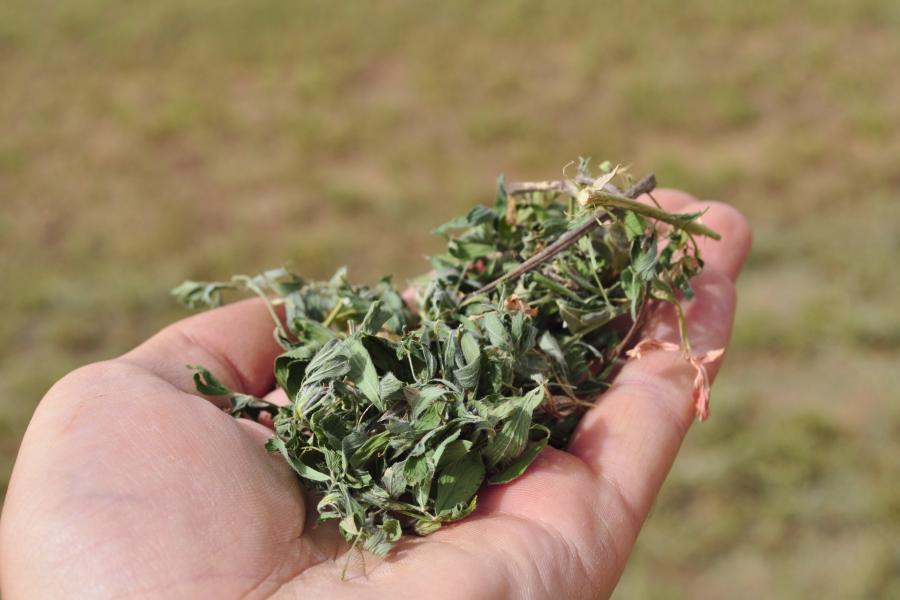
Alfalfa project development and management
In 2013, the first phase of 40 pivots and its irrigation network was under installation. An operational plan of the project was not available, however, the client wanted to start seeding, as soon as possible, supported by a top-level crop management company to avoid any shortfall on its return on investment.
Within 6 months after its initial involvement in the project, Expert Farmer was able to start the farming of 2000 ha, 90 % planted with alfalfa. Under the leadership of the Expert Farmer, GLB succeeded in achieving the production of top quality alfalfa recognized by the international market and exported to the Gulf Countries, Saudi Arabia and China.
The agronomic and management design for the project was successfully completed by Expert Farmer. The crop planning for alfalfa, corn, sorghum, and Rhodes grass was meticulously designed with minimal soil preparation and optimized crop husbandry plans. The crop husbandry plan was optimized to reach top-level quality production, and farming equipment was procured for minimum tillage practices. The organizational structure of the farm, the workshop, and the maintenance procedures were established, as well as the record-keeping and budgeting systems for farming operations.
Expert Farmer successfully managed the full-time crop management. The recruitment recommendations were followed, and job descriptions were prepared for on-site and remote recruitment processes. The new management team and workforce were trained and evaluated, and the project was managed on-site by one of our dedicated senior farm manager.
The economic analysis was conducted successfully, including the economic study and profitability forecast for each cropping season. The Business Plan was reviewed and updated when relevant, and economic recording and analysis for SAP integration were performed.
In addition to the full-time management team involved in daily operations, Expert Farmer organized complementary missions to update the farm design according to the evolution of shareholder requirements and specific tasks requiring subject matter experts. These included:
- Review and update of large-scale equipment line
- Validation designs for housing, warehouse, storage and civil engineering
- Development of the project and setup of farm extension project
- Topographic and crop status remote-sensing with dedicated drones
- Site assessment of the full project extension potential reaching 87,200 ha
- Economic forecast
The project was a resounding success, showcasing Expert Farmer's expertise and meticulous planning in every aspect of the agricultural endeavor.
